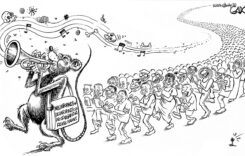In line with our Editorial Charter, ZimFact’s editorial decisions fall under the control of the Editor-in-Chief. No other bodies or sources have any influence over our editorial policy and independence.
1. Selection of story or information to fact-check
While ZimFact allows readers to suggest potential checks, under the principle of editorial independence, the editorial team decides on articles or information to fact-check, basing the selection on topical importance and strong public interest, as well as on whether the information is presented as fact or opinion and on fact-checking all sides of a debate.
2. Establishing the exact words
In cases of contested claims and statements, we seek to establish the exact words used, the actual context and how they were reported.
3. Asking for evidence
We always do our utmost to contact the source of the disputed information to provide evidence for their claims.
4. Checking archives and other sources
We check information published or broadcast against information in our own and other available sources.
We cast our net widely and will record evidence from other sources both supporting and contradicting a given claim.
5. Consulting experts
We cross check information and, where necessary, check with established experts.
6. Minimum sources in fact-checking
We do not use a single source as the basis of fact-checking claims. We use a minimum of two sources, and we will strive for more depending on the information in dispute.
7. Publishing, broadcasting fact-checked report
We produce a fact-checked report by setting out the original claim and the context in which it was delivered, provide evidence, and end with a balanced conclusion. All reports are subjected to reviews by researchers and members of the editorial team to cross-check for accuracy before publication or broadcasting.
We publish our reports on our website, for free access by the media and public.
We correct any mistakes with full transparency.










